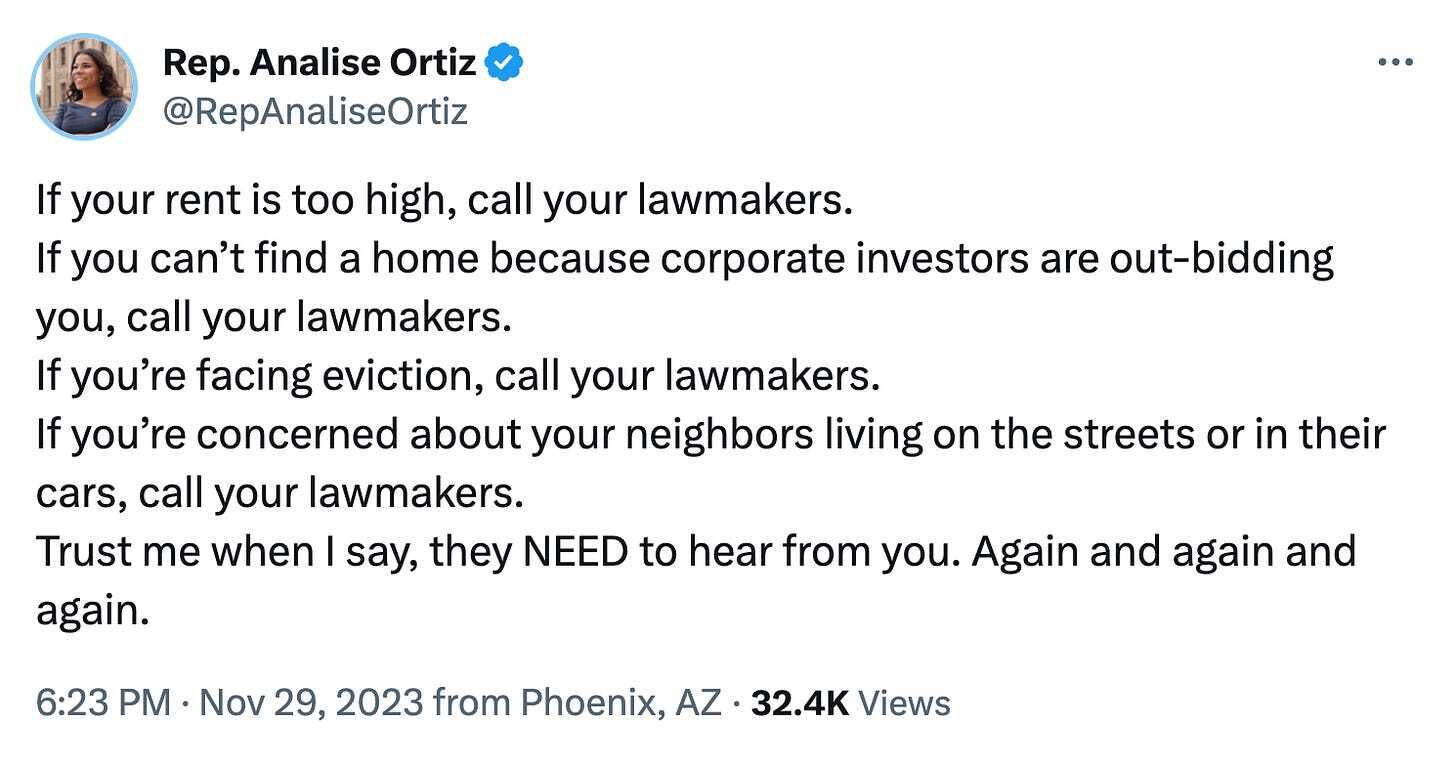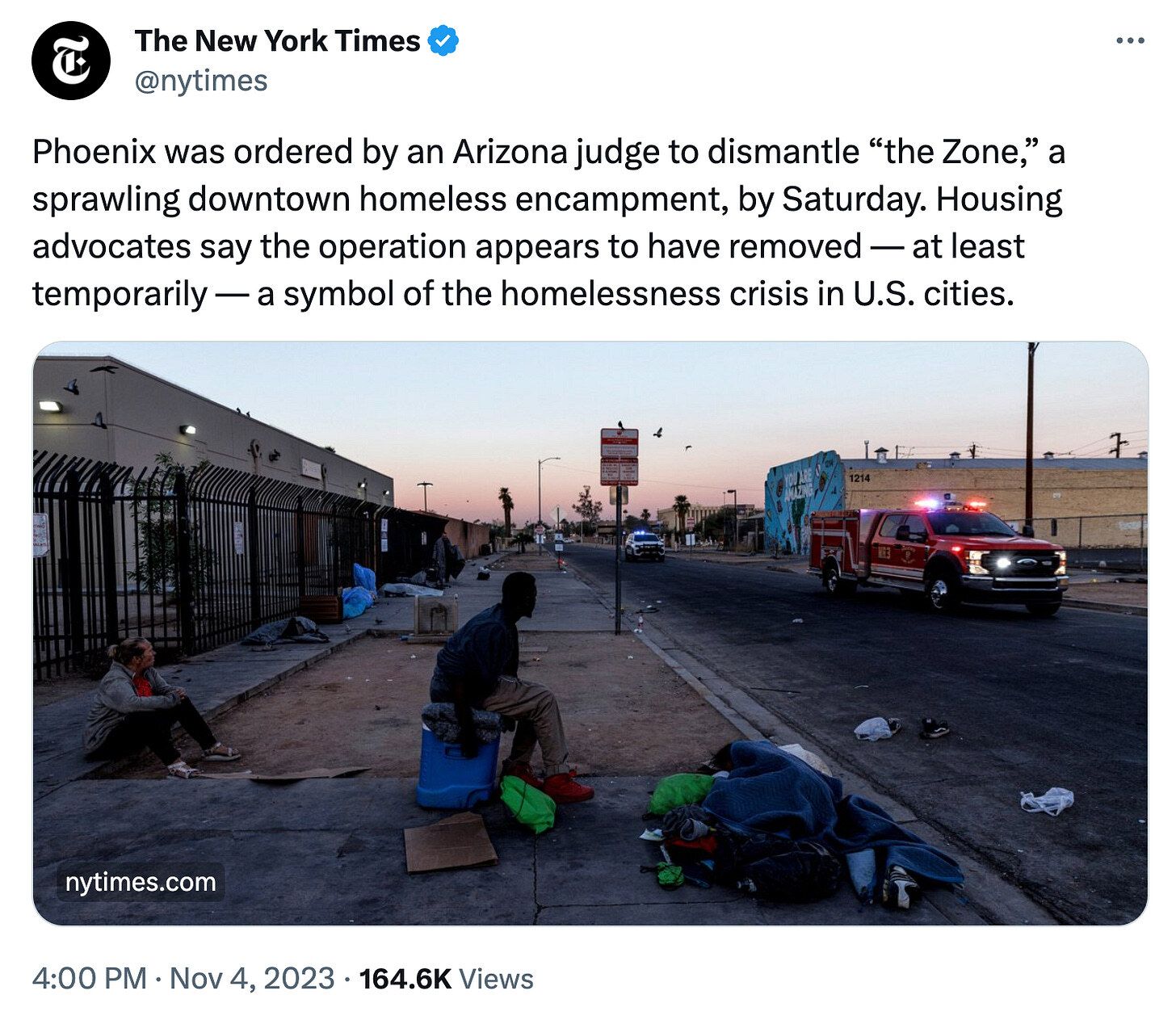Last year, lawmakers promised to work together to solve perhaps the biggest issue facing Arizona — a lack of affordable housing and spiking homelessness.
They pinned their hopes on a package of bills by Republican Sen. Steve Kaiser to restrict cities’ control of housing projects by loosening zoning laws and speeding up approval processes while slashing through red tape to do so.
Some provisions of that package would have forced cities to allow “by-right” housing that fast-tracks affordable units near transit lines, allow smaller lots on smaller homes and meet set dates for the many steps of the zoning process to happen. The localities, in turn, would have less say in what housing looks like.
But cities and their powerful lobbying organization, the League of Arizona Cities and Towns, were staunch opponents, saying the bills would limit local control and do nothing to guarantee whatever housing got built would be affordable. After months of negotiations and compromise, cities killed the bills and housing prices and homelessness continued climbing.

Kaiser resigned from the state Senate shortly after, partly so he could work full-time on addressing the housing crisis.
But he says all that work he and others put into housing reform wasn’t for nothing. Sometimes, it just takes a few years to pass ambitious legislation.
“It's been so contentious the last two years, it's actually created a lot of conversation around it,” he said. “It's one of those things where you rock the boat so hard that you can't help but talk about it now.”
Democratic Rep. Analise Ortiz, who supported Kaiser’s housing reform package, said none of the bills that were proposed last year were an extreme takeover of local control, as cities argued, and she’s hopeful that after another year of inaction at the state level, constituents are so fed up that they force the issue at the Capitol.
“If the city wants to maintain control of how they zone, we can talk about a compromise point there,” she said. “But it's unacceptable to say that the state needs to stay out of housing policy when it is an issue, a statewide concern. And when we have seen time and time again, cities fail to address the need for more housing.”

Some cities still made some headway on their own. Tucson started a zoning process to permit accessory dwelling units, or casitas, to add to the housing stock, and Phoenix followed Tucson’s lead.
And some municipalities passed measures to limit short-term rentals eating into the housing stock, despite 2016 legislation preempting cities to regulate companies like Airbnb and VRBO. But cities can require short-term rental owners to get permits to operate, and Phoenix and Flagstaff took advantage of that provision this year.
But no city has found a good solution for the biggest, most visible symptom of the housing crisis: Proliferating homelessness. Phoenix was ordered to clean out, “The Zone,” a massive campsite downtown, and did so in November after local business leaders won a lawsuit against them. The same attorneys behind that case filed a lawsuit against Tucson in September. Maricopa County saw a record number of evictions in October as the region’s growth outpaces its housing supply.

Despite their failure to act in 2023, lawmakers are optimistic they’ll get some housing legislation done next year. Kaiser said he’s working with a grassroots group to push housing affordability bills that are still under wraps, this time from outside the system, where he hopes to find more success. Ortiz said she’s co-chairing a bicameral workgroup to brainstorm housing policy ideas and plans to sponsor bills for zoning reforms, tenant protections and rent stabilization.
“As more people have moved to Arizona, we have not kept up with the growth, and so we need to build more places for people to live,” she said. “The number one way we can do that is by rolling back restrictive zoning measures at the city level.”

Dismal data: Five of seven rural groundwater basins showed declining levels in the Arizona Department of Water Resources’ first supply and demand assessment. This is the first year the water department is required to conduct the studies after the lawmakers passed legislation requiring them last year, and the inaugural findings break down the data of seven of the 51 basin studies the department now has to release every five years.
“(T)he clock has run out for lawmakers to pass rural groundwater reform,” Democratic Rep. Stephanie Stahl Hamilton said in a press release. “The results of these supply and demand assessments are a stark wakeup call but also an opportunity to come together on a bipartisan plan to address our long-term water security and ensure the sustainability of rural groundwater resources.”
In good company: Ira Gaines, who pleaded guilty in March to a stock manipulation scheme, is hosting a reception for former Republican State Sen. Michelle Ugenti-Rita, who’s now running for the Maricopa County Board of Supervisors. The suggested donation for attendees is $500. Speaking of ethical lapses, also in attendance will be Republican Rep. David Schweikert, who was fined $50,000 for campaign finance violations in 2020, and hit with another $125,000 fine in 2022 for the same reasons.

Hallowed be thy vote: Dustin Daniels, a leader of a conservative Cottonwood church, has been pushing anit-LGBTQ+ policies with City Council members, including coaxing them to vote against allowing a drag show performance, emails obtained through a public records request showed, via LOOKOUT’s Joseph Darius Jaafari. The council later revoked the drag show’s liquor license, and the city’s facing a civil rights complaint from the show’s organizer.

Where was the math department?: The University of Arizona spent $125 million more than it made last fiscal year as it now faces financial calamity due to a $240 million miscalculation, the Star’s Ellie Wolfe reports. UA President Robert Robbins’ office overspent nearly $1.7 million, and internal documents show a $55 million COVID-era loan to the athletics department is closer to $90 million. Meanwhile, advocates are trying to save what remains of a UA chapel designed by architect Paolo Soleri, per the Arizona Luminaria’s Dianna M. Náñez and Carolina Cuellar.
Speaking of stupid spending: An ASU employee in the president’s office was indicted for embezzlement after the Auditor General’s office said he used university money to buy “12 gaming consoles, 11 $1,000 Costco Shop Cards, 10 smartwatches, 2 Christmas trees, a washer and dryer, treadmill, and row machine,” among other items.
“(Carlos) Urrea acknowledged to us that he used his ASU (card) for personal purchases, claiming he was trying to support his family and provide for his kids, but further stated it was ‘very dumb’ on his part,” auditors wrote.
We would never spend your subscription dollars or more than one Christmas tree. That’s just silly.
Payouts pile on: Phoenix City Council will consider settling the third payout for its police department in less than 45 days, racking up a total of $11 million. The payout, if approved Wednesday, is for the family of a man who had a heart attack and died after officers shot him with a stun gun, KJZZ’s Matthew Casey reports.
Gift card grift: Attorney General Kris Mayes announced an investigation into organized retail theft through cloned gift cards and said her office seized thousands of the counterfeit cards and arrested eight people tied to an organized scheme. The con entails copying the magnetic strip from a gift card on store shelves and draining the funds once someone buys it.

Cochise County won’t cover the newly indicted Cochise County Supervisors Tom Crosby and Peggy Judd’s legal fees, so maybe their ardent supporters will.
Judd wants $90,000 while Crosby is asking for a nice round $100,000 on an online fundraising platform called GiveSendGo. The supervisors face allegations they conspired and interfered with an election officer after they delayed the county’s vote certification in 2022.
“We are modest people, there are no silver spoons in our family,” Judd wrote on her donation page. “I do not believe I stand a chance of fighting this criminal case against me without an excellent attorney, and I certainly cannot pay my excellent attorney without your help,”
We’d like to think we’re modest people, too, and our silverware is hard-earned.
If you don’t want to contribute to the election-deniers virtual tip jar, we have a better option for you. And we haven’t been indicted (yet)!

CORRECTIONS: Yesterday’s edition misnamed Democratic U.S. Rep. Greg Stanton as Mark Stanton, who is not a congressman but just a random person Hank once went to school with. Additionally, in Thursday’s edition about Democratic Rep. Leezah Sun, we repeated her error that SB1487 complaints can be leveled against school districts. As one keen-eyed reader noted, while there have been attempts to expand the law over the years, it currently only applies to local governments, not schools.

